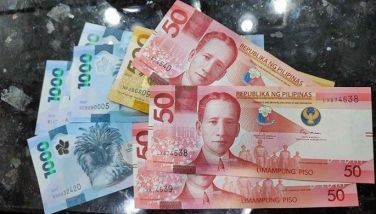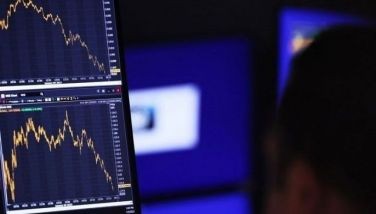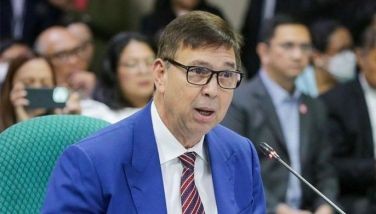ADB bats for ‘selective’ capital controls As developing countries brace for impact of looming United States rate hike
MANILA, Philippines - “Selective” capital controls could be imposed by countries in developing Asia – including the Philippines – in order to manage the impact of the upcoming US interest rate hike while boosting growth, the Asian Development Bank (ADB) has suggested.
“To deal with monetary policy dilemma between stabilizing the domestic financial sector and responding to the need for domestic demand stimulation, regional authorities can… (adopt) careful macroprudential policy that selectively controls destabilizing capital flows,” the ADB said in a report released Tuesday.
“Imposing filters on several types of debt flows can make independent monetary policy more effective,” the report updating the Asian Development Outlook said.
In particular, the Manila-based lender said its studies showed that controls to capital flows in bonds, money market commercial and financial, and derivatives have been “effective” in dealing with spillovers from central bank actions abroad.
The policy recommendation came after the multilateral organization slashed its growth forecast for developing Asia to 5.8 percent this year from the original six-percent forecast in March.
Slowing growth would have required lower interest rates, something when done would make economies more unattractive to capital seeking higher returns. As a result, the ADB said capital controls could come in handy.
“Regional monetary authorities need more scope for conducting monetary policy that is more independent of conditions and policy in the US without jeopardizing the stability of national finance,” the report stated.
Last week, the US Federal Reserve kept its near-zero policy rates in place since 2006 despite recent improvements in the US economy that could have warranted higher interest rates to control financial stability.
It cited, among others, the rout in emerging markets in recent months, especially following China’s devaluation of its currency, the yuan, which effectively signaled weakness in Asia’s largest economy.
The Philippine peso, specifically, has weakened versus the greenback by about five percent since the end of last year. Other regional currencies have slumped as well as capital seeks refuge in the US dollar.
In a briefing last Tuesday, ADB principal economist Joseph Zveglich Jr. said Asian currencies could tumble further as long as the US keeps the market waiting for its much-anticipated hike in rates.
“We are still anticipating for something to happen in the coming months or before the end of the year. We see this more as a question of “when” not “if,” Zveglich told reporters.
“While this [US rate hike] is something that will create volatility, we do not expect it to come as a shock to the region,” he added.
On its policy-meeting last Thursday, the Bangko Sentral ng Pilipinas (BSP) kept its policy rates unchanged at four and six percent, citing risks from the El Nino phenomenon which could tilt record-low inflation higher in the months to come.
The BSP also cited the persistent weakness in the global economy and the volatility in the world markets in justifying its decision.
- Latest
- Trending



























